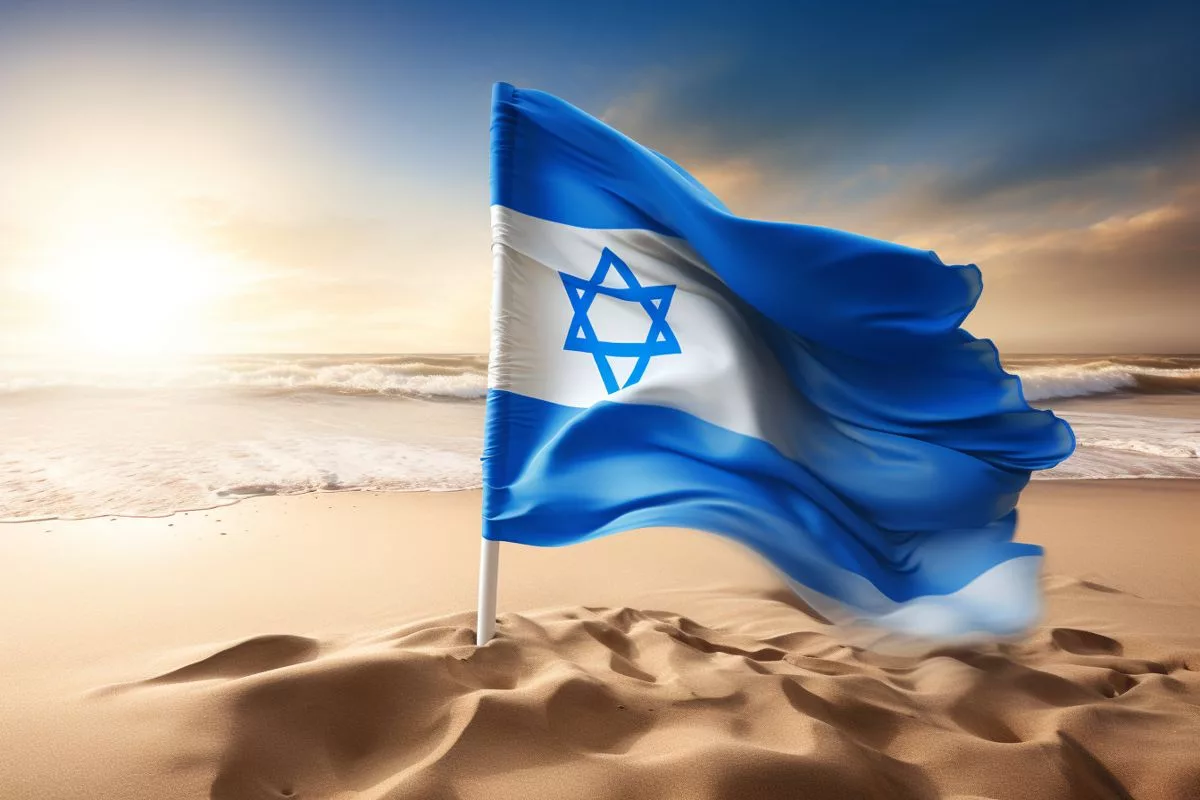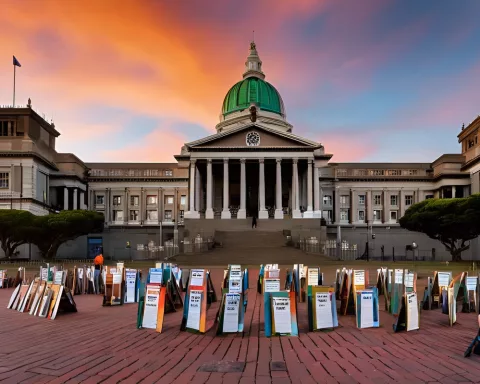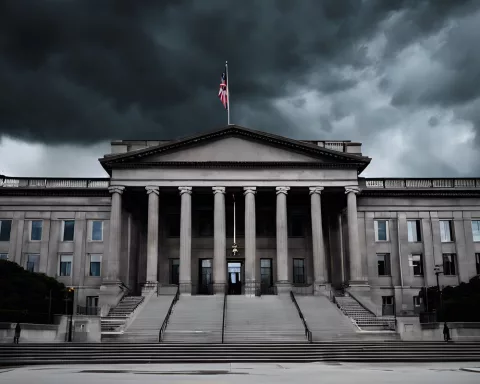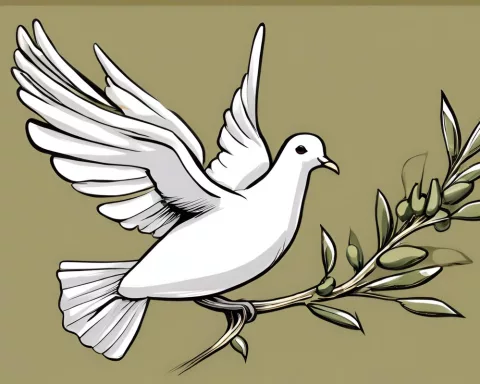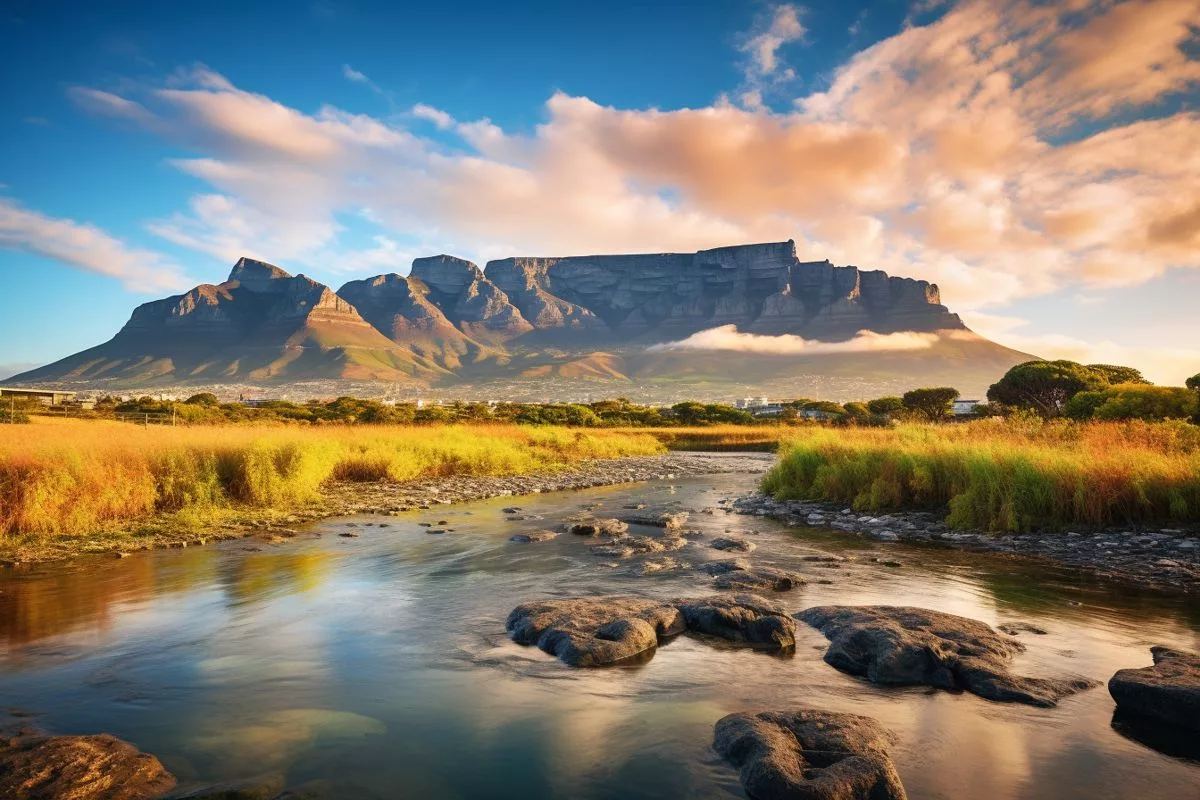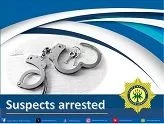A pro-Israeli protest turned chaotic when pro-Palestinian counter-protesters arrived at Sea Point Promenade in Cape Town. Tensions rose between the two factions, and law enforcement had to intervene with stun grenades and pepper spray. The protest was one of many worldwide demonstrations in response to Israel’s bombing of Gaza, causing thousands of deaths. Mayor Geordin Hill-Lewis condemned the violence and called for tolerance, while Reverend Barry Isaacs advocated for peace and a mutual understanding between the two sides.
What happened during the Cape Town protest at Sea Point Promenade?
A pro-Israeli demonstration intended to be a tranquil assembly was abruptly interrupted by an impromptu assembly of pro-Palestinian counter-protesters. Tensions flared between the two factions, and law enforcement had to intervene with stun grenades and pepper spray. The protest was one in a series of demonstrations in response to Israel’s bombardment of the Gaza Strip, causing the deaths of over 11,000 individuals. Mayor Geordin Hill-Lewis condemned the violent interruption of the peaceful pro-Israeli assembly and called for tolerance.
Section 1: The Unexpected Unrest at Sea Point Promenade
A serene Sunday at Sea Point Promenade in Cape Town was abruptly disrupted by the cacophony of two dissenting protest factions. One group, a pro-Israeli faction brought in on coaches, was met head-on by an impromptu assembly of pro-Palestinian counter-protesters. As the day wore on, the once tranquil promenade metaphorically metamorphosed into a battlefield of starkly contrasting beliefs.
The pro-Israeli protest primarily consisted of participants from various Christian churches and was intended to be a tranquil assembly. The City initiated this gathering, not the police, as confirmed by Reverend Barry Isaacs, the organizer of the event. But, the arrival of the pro-Palestinian counter-protesters abruptly interrupted this tranquility.
Abeedah Adams, a delegate from the Palestinian Solidarity Campaign, was among the counter-protesters. Adams argued that, unlike their former marches in support of Palestine, this particular counter-protest was not affiliated with any formal organization. Instead, it was a spur-of-the-moment display of emotion, driven by news and posters about the pro-Israeli demonstration. For this group, the public endorsement of Zionism was unwelcome in Cape Town.
Section 2: The Escalating Conflict and Law Enforcement’s Response
The initial peaceful purpose of the pro-Israeli demonstration quickly dissipated as tensions flared between the two factions. GroundUp, a non-affiliated news outlet, documented a pro-Palestinian protester provoking an altercation by snatching an Israeli flag from a pro-Israeli supporter. The police reacted by deploying stun grenades in an attempt to scatter the disorderly crowd. However, the pro-Palestinian crowd stood their ground, ignoring their leaders’ pleas to withdraw and comparing the police response to the brutal law enforcement of apartheid-era South Africa.
Despite the significant police attendance, there were moments when intervention was essential. In one instance, a small faction of pro-Palestinian protesters attempted to intimidate a pro-Israeli supporter who was confined to a wheelchair. The police utilized pepper spray to manage the situation, a testament to the intensifying on-site tensions.
Section 3: Public Reactions and Reflections
This protest is merely one in a series of demonstrations that have been unfolding in Cape Town over the past month in response to Israel’s bombardment of the Gaza Strip and the resulting civilian casualties. The recent attacks caused the deaths of over 11,000 individuals, including more than four thousand children—a fact that has ignited global condemnation and thrust the Israeli-Palestinian conflict back into international focus.
Reverend Barry Isaacs expressed his concern for the innocent Palestinians who died, emphasizing that they were mourning for them just as deeply as for the Jewish people. “Our goal is to pray for peace and search for a solution,” he stated. He advocated for a mutual political understanding and recognized Israel’s right to defend itself.
In the midst of the upheaval, the Jewish Board of Deputies denounced an alleged act of antisemitism by a speaker during Saturday’s pro-Palestinian demonstration. The speaker accused Herzlia, a Jewish school in Cape Town, of breeding killers, a statement that the Jewish Board of Deputies countered fiercely. They advocated for every child’s constitutional right to secure education in the country.
Mayor Geordin Hill-Lewis also weighed in, commending Cape Town’s dedication to freedom of expression and calling for tolerance. He portrayed the city as a beacon of tolerance amidst worldwide disagreements and conflicts, and condemned the violent interruption of Sunday’s planned peaceful pro-Israeli assembly. Further, he criticized the hate speech targeted at children, referring to the incident at Herzlia school.
The Mayor’s sentiments are in sync with the city’s past, where protests were previously either forbidden or ruthlessly suppressed. He reaffirmed the right to peaceful protesting, a constitutionally protected right in South Africa, and demanded that every demonstration be respected and allowed to proceed peacefully.
As the dust settles from the confrontations, Cape Town continues to be a small-scale representation of the ongoing Israeli-Palestinian conflict. The city’s diverse views, spontaneous emotional responses, and fervent pleas for peace reverberate beyond its boundaries, reflecting the world’s struggle with this enduring dispute.
1. What happened during the Cape Town protest at Sea Point Promenade?
A pro-Israeli demonstration intended to be a tranquil assembly was abruptly interrupted by an impromptu assembly of pro-Palestinian counter-protesters. Tensions flared between the two factions, and law enforcement had to intervene with stun grenades and pepper spray.
2. Who organized the pro-Israeli demonstration and who were the counter-protesters?
The pro-Israeli protest primarily consisted of participants from various Christian churches and was organized by the City, not the police. The pro-Palestinian counter-protesters were not affiliated with any formal organization and were driven by news and posters about the pro-Israeli demonstration.
3. How did law enforcement respond to the escalating conflict?
The police deployed stun grenades in an attempt to scatter the disorderly crowd, but the pro-Palestinian crowd stood their ground, ignoring their leaders’ pleas to withdraw. The police also utilized pepper spray to manage situations where small factions attempted to intimidate others.
4. What have public reactions been to the protest?
Reverend Barry Isaacs advocated for peace and mutual understanding between the two sides, recognizing Israel’s right to defend itself and expressing concern for the innocent Palestinians who died. The Jewish Board of Deputies denounced an alleged act of antisemitism during a pro-Palestinian demonstration and advocated for every child’s constitutional right to secure education in the country. Mayor Geordin Hill-Lewis called for tolerance and reaffirmed the right to peaceful protesting, demanding that every demonstration be respected and allowed to proceed peacefully.
5. What was the cause of the worldwide protests that this demonstration was a part of?
The worldwide protests were in response to Israel’s bombing of Gaza, which caused thousands of deaths, including over 11,000 individuals and more than four thousand children.
6. What does this protest reflect about the ongoing Israeli-Palestinian conflict?
Cape Town’s diverse views, spontaneous emotional responses, and fervent pleas for peace reflect the world’s struggle with this enduring dispute. The city continues to be a small-scale representation of the ongoing conflict.

